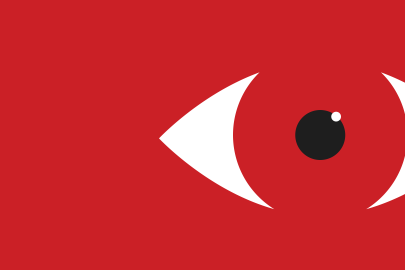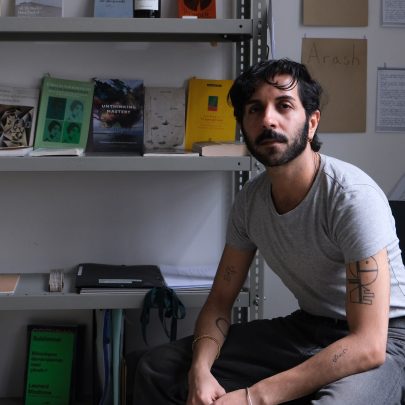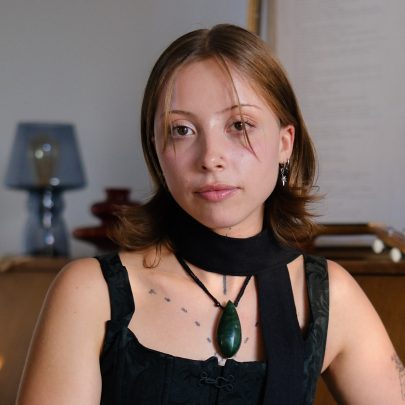Feb 23, 2014 Art
The trick of a good opening weekend is to stage a big public event that attracts thousands and makes everyone in the city feel like it’s their festival – and at the same time, with the other shows, you have to showcase the range and standard of work to come. With this festival barely 24 hours old as I write, I’m happy to say that if you weren’t quite sure about it, be sure. Book those tickets.
They got the mass event right, with hundreds of drummers and singers in the perfect amphitheatre of Civic Square. And they got the variety. I started with a “subtle mob”: I signed up to take part in an event called Our Broken Voice whose nature I knew nothing about, was sent an MP3 file to load onto my phone and told where to be at the appointed 6pm. At that time I had to hit play. I was also told to try to remain invisible.
So there I was, standing discreetly near the location – a big public space with a lot of people around – spotting several others doing the same. All casually spotting each other: by our earpieces we were known. The file itself revealed that we were to relive the last half hour before a catastrophic “major event”, each of us assigned to be one of four characters. It was highly charged, with suspenseful movie music playing through the commentary and instructions, and at moments quite thrilling. By the time we were all in one place, there seemed to be at least 200 of us. There was comedy too. All the men with my role were told, at one point, that we would see a woman writing in a notebook. I counted a dozen. I had to follow one; she it turned out later, had to lose me.
It could have had more activities, more events, and by the end it did feel a little dramatically unresolved. But the value of the thing lay less in the activities than in the way it threw you back on yourself in the midst of a crowd. Our Broken Voice, at heart, was a meditation on social connections. Afterwards, we were invited to gather at a nearby pub to chat. You need that –when you come out of it, the desire to talk is strong. A rewarding festival experience.
Deca Dance, that same night, showcased the work of Israeli choreographer Ohad Naharin and his Batsheva Dance Company. The programme was a sampler: 10 pieces presenting the range of their work. Most of them were highly energetic and utterly spellbinding, and I’m so glad I saw them. But I couldn’t shake the feeling that festivals deserve more than samplers. To have a large company come all this way and not get them to present a full-length, thematically charged work seems neglectful. I’m not against the sampler – it’s a great introduction – but it shouldn’t be all we get. At festivals now it’s well established that orchestras will present a populist programme and something more demanding; dance should be doing that too.
At one point in the show, the cast comes down into the audience, where each of them selects a woman to take back on stage and dance with. I sat there thinking, thank god I’m a man, but by the end of the sequence I didn’t think that at all. I would say every one of the 18 women I saw chosen felt transformed by the experience. For some of them, it seemed to be intensely rewarding. And that was part of what made it rewarding for the rest of us, too. If you go, and you’re female, wear red. Mostly, that’s who they picked.
At Circa, Aucklander George Henare puts in a commanding performance in a new play by another Aucklander, Stuart Hoar. Pasefika is the story of French artist Charles Meryon, who lived for two years in the 1840s in the French colony of Akaroa. Hoar has counterposed French/Maori relations with Parisian life 20 years later, focusing one storyline on a pompous minor chief and the other on the poet Charles Baudelaire, both played by Henare. It’s a sophisticated, provocative and endlessly playful take on race relations and cultural values, and a splendid vehicle for Henare’s talents.
Best of all, so far? Robert Lepage’s Needles and Opium, pictured above. This tale of the poet Jean Cocteau and musician Miles Davis, featuring a lot of magnificent early Davis, is so inventive in its staging, so beautiful in its imagery, so shot through with grace and melancholy and quite delightful moments of wit, you sit there feeling honoured you had the chance to see it. The play has divided audiences, which is excellent, really, but in my book it sits beguilingly, and proudly so, at the artistic heart of the festival.
While you’re there, by the way, check out some of the new bars and restaurants. We’ve got a run down on some Metro favourites in our March issue.
Simon Wilson visited the International Arts Festival in Wellington courtesy of Positively Wellington Tourism and the festival.





